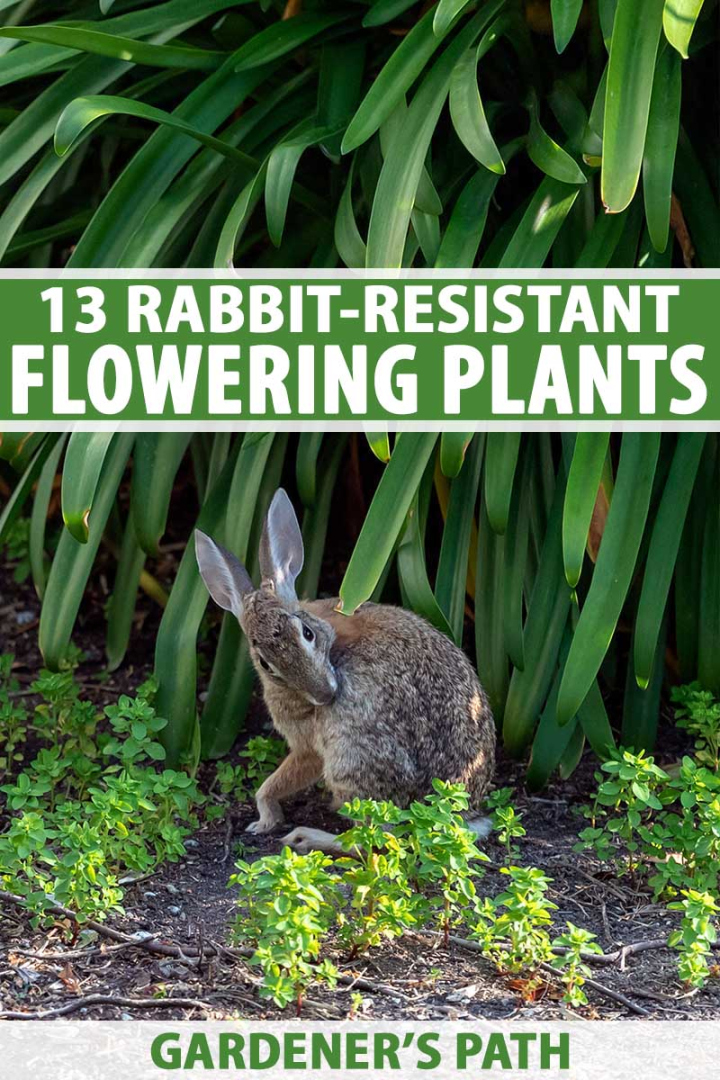What Flowers Do Rabbits Not Eat?
When it comes to creating a beautiful garden, there is nothing more disheartening than spending time and effort planting flowers, only to have them quickly devoured by rabbits. These adorable creatures may be a delight to look at, but they can wreak havoc on your garden. However, not all flowers are on their menu. In this article, we will explore what flowers rabbits do not eat, allowing you to enjoy a vibrant and rabbit-free garden.

Flowers That Repel Rabbits
While rabbits have a diverse palate, there are certain flowers that they tend to avoid. These flowers contain scents or tastes that rabbits find unappealing. By including them in your garden, you can create a natural barrier that deters rabbits from feasting on your precious blooms. Here are some flowers that have repelling properties:
- Marigolds: Marigolds not only add a pop of color to your garden, but their strong scent also repels rabbits.
- Lavender: Rabbits are not fond of the strong fragrance of lavender, making it an excellent choice for deterring them.
- Geraniums: Geraniums emit a distinct scent that rabbits find unappealing, making them an effective deterrent.
- Nasturtiums: Nasturtiums not only repel rabbits with their pungent smell but also attract beneficial insects that help keep your garden healthy.
Alliums: The strong odor of alliums, such as onions and garlic, are known to keep rabbits at bay.
Flowers That Rabbits Tend to Avoid
In addition to flowers with repelling properties, there are certain types of flowers that rabbits simply do not prefer. While they may nibble on them if food is scarce, these flowers are generally left untouched. Here are a few examples:
- Daffodils: The alkaloids present in daffodils make them less palatable to rabbits, making them a safe option for your garden.
- Irises: Irises have a bitter taste that rabbits tend to avoid, making them a good choice for rabbit-infested areas.
- Daylilies: Although daylilies are not completely rabbit-proof, they are less appetizing to these critters.
- Yarrow: Yarrow is a resilient flower that rabbits typically avoid due to its strong aroma and bitter taste.
Lily of the Valley: The toxins present in Lily of the Valley make it an unappealing choice for rabbits.
Protecting Your Flowers from Rabbits
Prevention is better than cure.
- Desiderius Erasmus
While planting rabbit-resistant flowers is a great way to protect your blooms, it is important to take additional measures to ensure your garden remains rabbit-free. Here are some strategies to keep rabbits away:
- Fencing: Erecting a fence around your garden can create a physical barrier that prevents rabbits from entering.
- Netting: Covering your plants and flowerbeds with netting can act as a deterrent, making it harder for rabbits to access them.
- Repellents: Using natural or commercial repellents can help deter rabbits from entering your garden. These repellents emit scents that rabbits find unpleasant.
- Companion planting: Planting rabbit-repellent flowers among your vulnerable plants can provide an added layer of protection.
Frequently Asked Questions
1. Are there any other plants that rabbits avoid?
Yes, there are several plants that rabbits tend to avoid. Some of these include foxgloves, dianthus, snapdragons, and catmint. However, it is important to note that while these plants may be less appealing to rabbits, they are not foolproof deterrents.
2. Can rabbits be trained to avoid certain flowers?
Rabbits cannot be trained like dogs or other domesticated animals. However, by consistently planting rabbit-resistant flowers and implementing deterrents, you can create an environment that discourages rabbits from feasting on your flowers.
3. Are there any flowers that rabbits love to eat?
Rabbits have their preferences when it comes to flowers. They particularly enjoy munching on pansies, petunias, impatiens, and hostas. If you have these flowers in your garden, it is likely that rabbits will target them.
4. Can rabbits cause any other damage to my garden?
Apart from eating flowers, rabbits can cause damage by digging burrows, gnawing on bark, and chewing on young trees or shrubs. It is important to take preventive measures to protect your garden and prevent further damage.
By selecting rabbit-resistant flowers, implementing deterrents, and taking preventive measures, you can create a beautiful garden that is less enticing to rabbits. Remember to choose a variety of flowers to create a diverse and vibrant garden that will be a delight to both you and your rabbit-free blooms.
Related Articles…
Copyright Notice:
All images on this website are obtained from the internet and remain copyrighted to their original owners. If you hold copyright to any image and want it taken down, please reach us.
